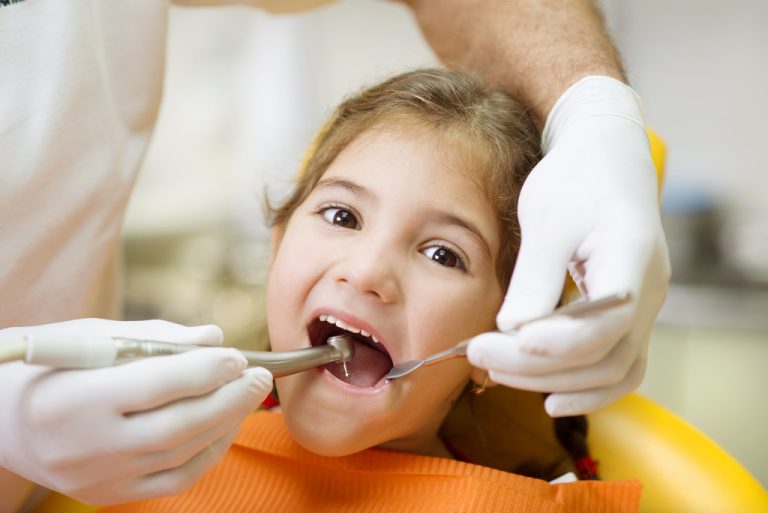- An underbite is a dental condition in which the bottom teeth are positioned in front of the top teeth when the mouth is closed.
- Possible causes of underbite include genetics, thumb sucking, early tooth loss, and mouth breathing.
- Treatment options for an underbite include an arch expander orthodontic appliance and orthodontic treatment combined with jaw surgery.
- The impact of an underbite on a child’s health can include difficulty speaking, eating, and breathing and potential dental problems such as tooth decay and gum disease.
As a parent, one of your primary concerns is the health and wellbeing of your child. If you have noticed that your child has an underbite, it may be concerning. After all, we all want our children to have a beautiful smile!
This article will discuss everything you need to know about underbite in children as a parent. It will cover what an underbite is, what causes it, and how it can impact your child’s health. Read below to explore the various treatment options available and when to see a specialist.
What is an Underbite?
An underbite is a dental condition in which the bottom teeth are positioned in front of the top teeth when the mouth is closed. In a normal bite, the top teeth slightly cover the bottom teeth when the jaws are closed. An underbite can cause discomfort and is also a cosmetic concern for many children and adults.
What Causes Underbite in Children?
An underbite is when the lower jaw sticks out farther than the upper jaw, resulting in the lower teeth overlapping the upper teeth. Here are the possible causes:
Genetics
One of the most common causes of underbite in children is genetics. Children may inherit the shape and size of their jaws from their parents, leading to malocclusion. Underbites in families may be more challenging to treat because they tend to be more severe. In some cases, surgery may be required to correct an underbite caused by genetics.
Thumb Sucking

Prolonged thumb sucking in children can also lead to an underbite. This habit puts constant pressure on the developing jaw, causing it to grow in a position favoring the lower teeth. Parents should encourage their children to stop thumb-sucking early on to prevent the development of an underbite.
Early Tooth Loss
If a child loses a tooth early due to decay or injury, the surrounding teeth may shift, causing an underbite. Parents should take their children to the dentist regularly to ensure their teeth and gums are healthy. Treating cavities and other dental issues promptly can prevent tooth loss and the development of an underbite.
Mouth Breathing
Children who breathe through their mouths instead of their noses can develop underbites. Mouth breathing causes the muscles in the mouth and face to change, leading to an altered jaw position. Encouraging children to breathe through their noses can help prevent the development of an underbite and improve overall health.
Treatment Options for Underbite
Fortunately, several treatment options for underbites can correct the condition. In some mild cases, the dentist may recommend using an arch expander orthodontic appliance, which works by slowly widening the upper jaw to create more space for the teeth. This treatment option is effective for children whose underbites are caused by a narrow upper jaw.
In more severe cases, your child may need orthodontic treatment and jaw surgery. The treatment process can take up to two years or more. However, with the right treatment plan and support from a dental specialist, your child’s underbite can be corrected, avoiding future dental problems.
The Impact of an Underbite on Your Child’s Health
Besides the effect on their physical appearance, an underbite can cause problems for your child’s dental health. Sometimes, it can lead to difficulty speaking, eating, and breathing. This can lead to a strained jaw and facial muscles.
If not addressed in time, an untreated underbite can result in more serious dental problems, such as tooth decay and gum disease. Therefore, it is essential to treat this condition as early as possible.
When to See a Specialist

If you are worried about your child’s underbite, seeing a pediatric dentist or orthodontist is essential as soon as possible. A dental specialist can evaluate your child’s dental condition, identify the underlying cause of the underbite, and recommend the right treatment plan. Early intervention can help prevent future dental problems and improve your child’s overall health.
Final Thoughts
Underbites in children can cause many concerns for parents, including the potential effects on their child’s dental health and cosmetic appearance. However, an underbite can be corrected with proper treatment and early intervention. As a responsible parent, it is essential to identify and address the risk factors early on and get your child evaluated by a dental specialist. Doing so ensures that your child maintains good oral health and a beautiful smile for the rest of their life.











